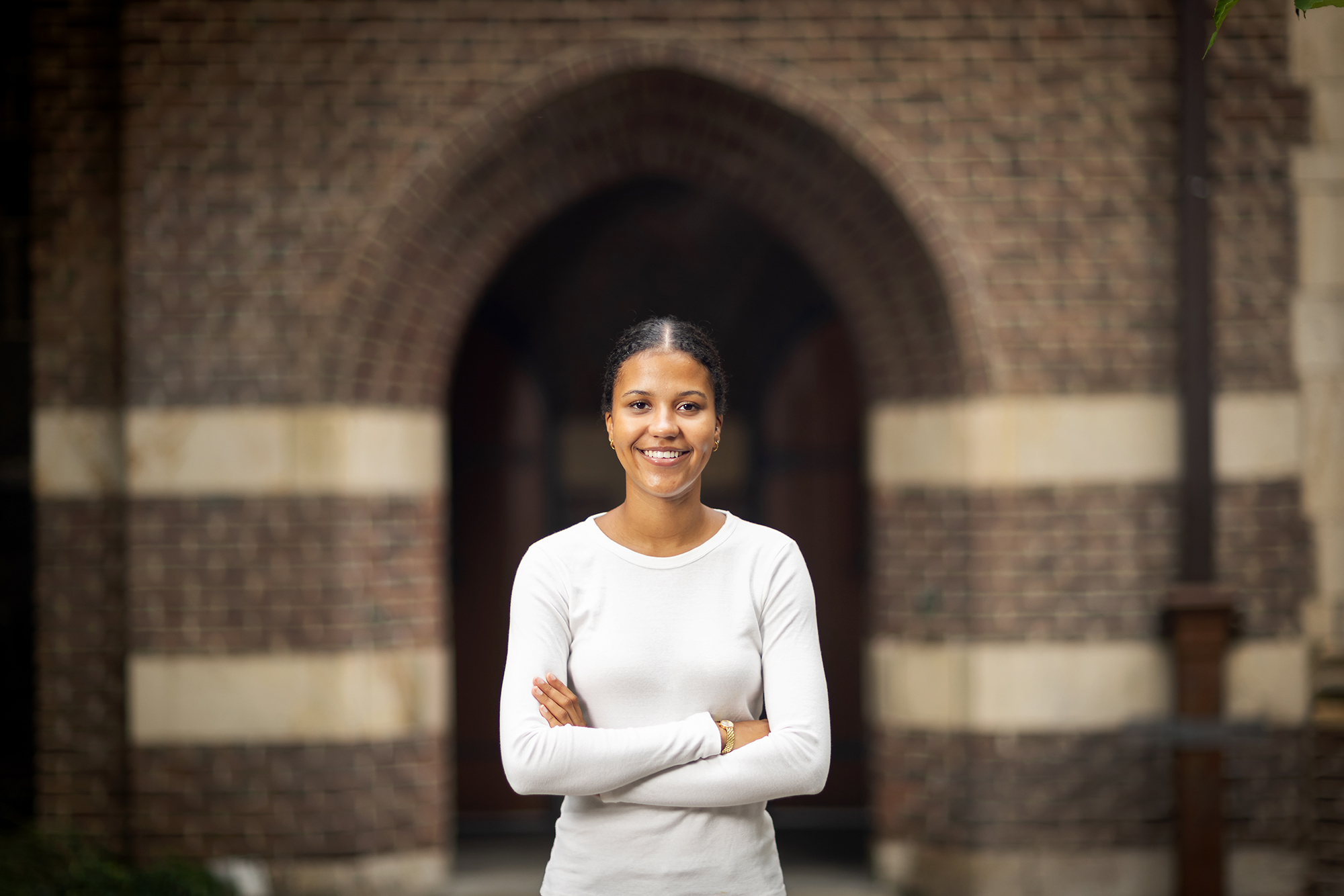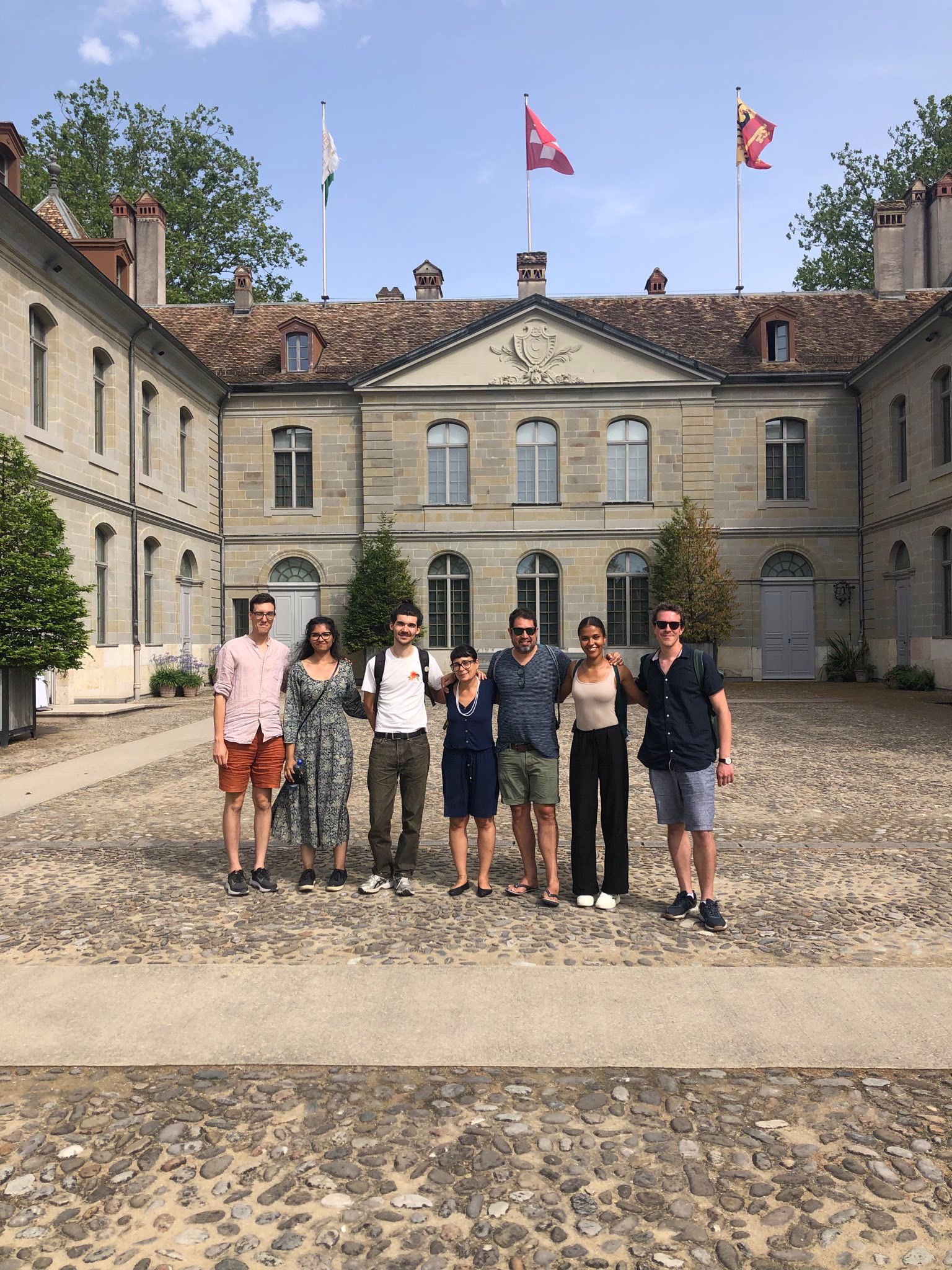
Rising fourth-year Sophie Mwaisela came to Penn dead-set on majoring in political science, but a history class her first year changed everything.
“It was Africa in World History with Dr. Lee Cassanelli, and I was just taken with the course,” says Mwaisela, who is from Baltimore, Maryland. “I discovered I really liked the humanities.”
So Mwaisela changed her major to history in the College of Arts and Sciences and is embarking on the department’s Honors Thesis Program. She has tapped into her own personal history as the child of a Swiss mom and Tanzanian dad as inspiration for her thesis looking at Switzerland’s role in 19th-century imperialism and the Scramble for Africa.
She notes that Switzerland, and Geneva in particular, is the headquarters for many international organizations, including offices of the United Nations and the Red Cross. “I’ve been learning how the history of these organizations are completely tied to the age of colonialism,” she says. “It doesn’t mean that they’re bad institutions, but understanding that places that we think are neutral and that we might hold above other ones because we think they’re more reasonable had their own biases at the time.”
This summer, thanks to funding from The Gelfman International Summer Fund, Mwaisela was able to spend the month of June in Geneva perusing the city’s archives, as well as take a trip to Basel to do the same. The fund is supported by the Center for Undergraduate Research & Fellowships (CURF).
“I’m looking into the question of neutrality and if any nation can truly claim to be neutral,” Mwaisela says.
Her research focuses mainly on The Swiss League for the Defense of the Congolese Natives that was formed by a journalist and botanist in the wake of the news of atrocities in the Congo. “They saw themselves as special because they were Swiss and they didn’t have any colonies, which gave them a really clear view on this,” she says.
Before leaving for Switzerland, she connected with Fabio Rossinelli, a professor at the University of Lausanne who specializes in the role of Swiss geographical societies and their ties to Belgium and its notorious King Leopold II. Rossinelli helped her refine her topic and recommended other sources to read.
“When I went to Geneva, I got the chance to meet with him, and he introduced me to several master’s students he’s mentoring on the topic of Swiss colonialism, because it’s a very new topic,” she says. Among them was a student doing her master's thesis on the colonial ties to Swiss chocolate.
“Swiss chocolate is produced in Ghana and South America, and that alone is an example of Switzerland’s involvement in the colonial project,” Mwaisela says. She was also included on the group’s trip to the Swiss National Museum.
Mwaisela is a work-study student in the Penn Libraries’ Kislak Center for Special Collections, Rare Books, and Manuscripts and in 2022 had an internship there as part of Penn’s Summer Humanities Internship Program, funded by the College and administered by CURF. “It has reaffirmed my love of the humanities,” she says, adding that after this summer spent conducting her own research in the dusty archives of Switzerland she has grown to appreciate archival work from both sides of the desk.
Cassanelli, a Penn professor who teaches African history and historiography and the history of foreign aid in Africa, is Mwaisela’s advisor in the history honors program. He says he is heartened to see students like her grow into producers of knowledge.
“Undergraduates often think of themselves as consumers of other experts’ knowledge, and I encourage resourceful students like Sophie to produce their own, and she's taken that to heart,” he says. “She has gone right ahead and made herself an emerging scholar of the subject.”
He says he especially likes her approach to her research topic, looking into the lives of notable individuals in Switzerland and their actions during 19th -century colonialism. “That’s significant because you don’t have something called imperialism without buy-in by lots of different people for different reasons. It’s not just one or two ‘big men’ in history who are making all the critical decisions. They had to get all kinds of influential people on board,” he says.
Especially after COVID-19 pandemic, Cassanelli says he noticed a tendency for some students to try to get all their information online, and he is pleased to see Mwaisela’s enthusiasm for going out into the world, looking for primary sources in underutilized historical archives. “Rarely have I seen an undergraduate whose eyes twinkle when they talk about shelving medieval manuscripts, which she gets excited by,” he says.
All that is what makes a dedicated historian, he says.
“You have to love that kind of work because you can spend days or even weeks finding nothing but a lot of trivial correspondence in musty old folders, and then suddenly you come across a piece of evidence, a little like a smoking gun, something you’ve always suspected but now you’ve confirmed,” he says. “Sophie is unusual, even for aspiring young historians today, in her enthusiasm for making those discoveries. And that, to me, is exciting. It keeps me young when I see students like her.”








